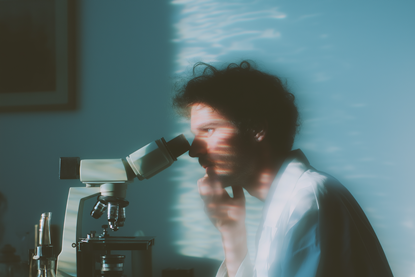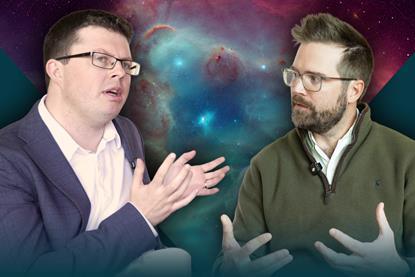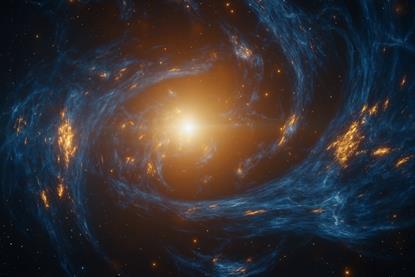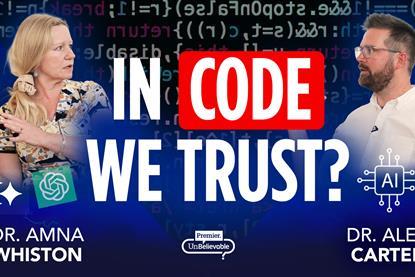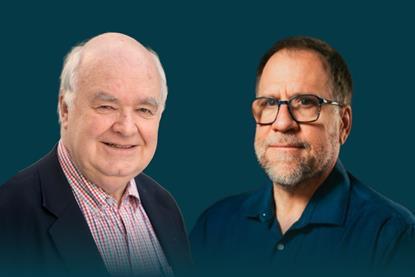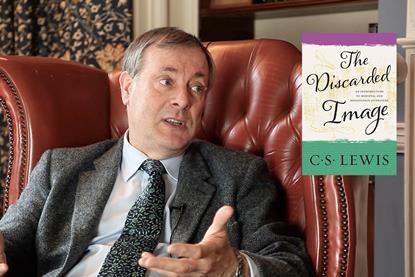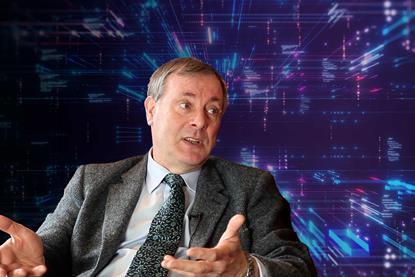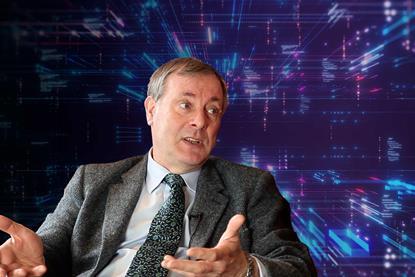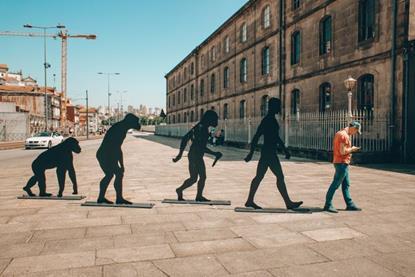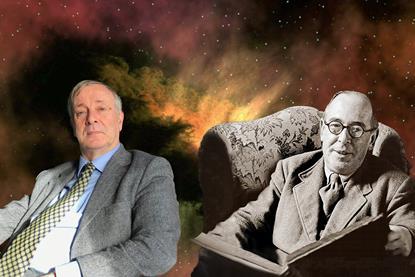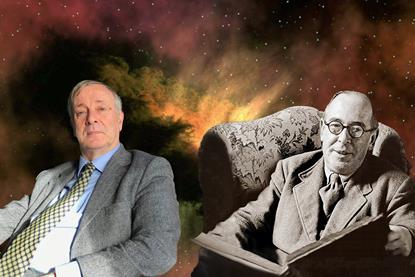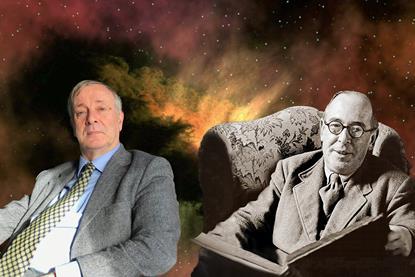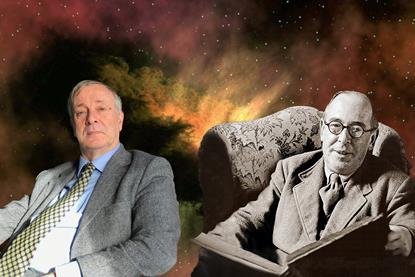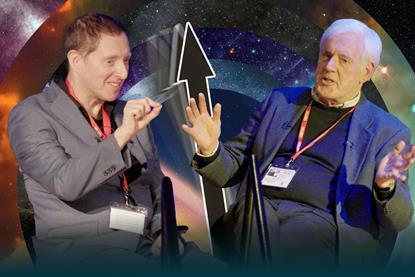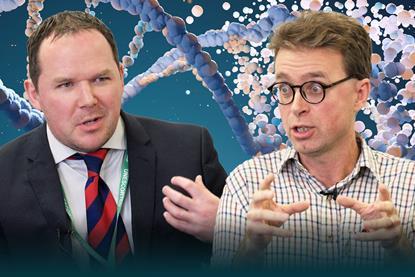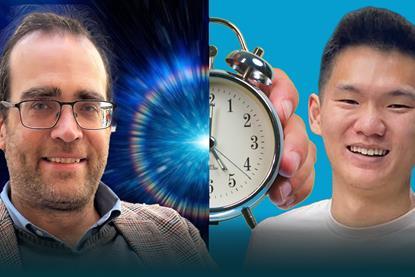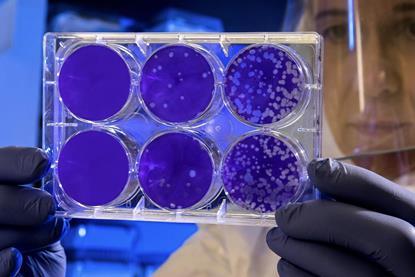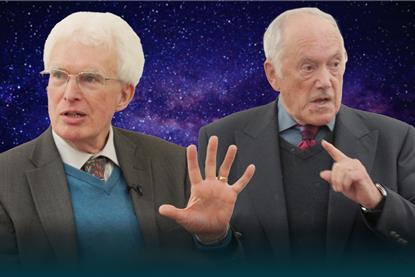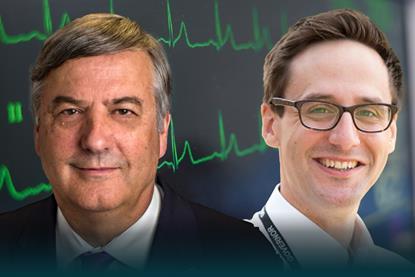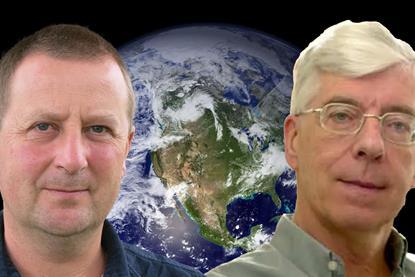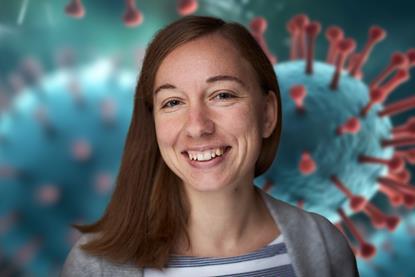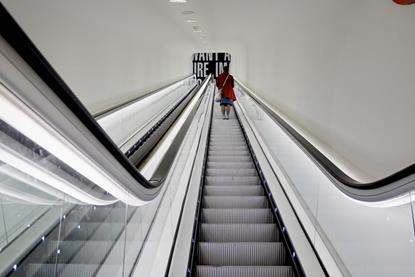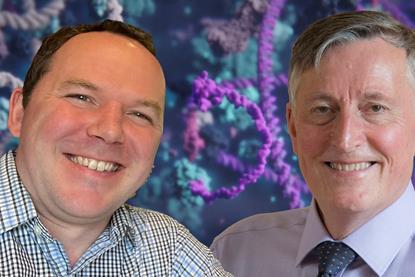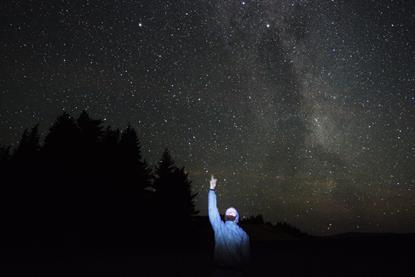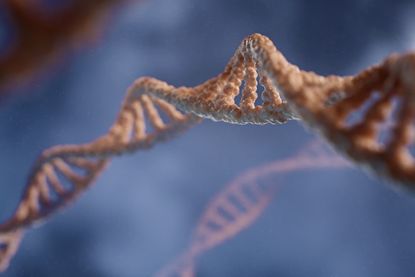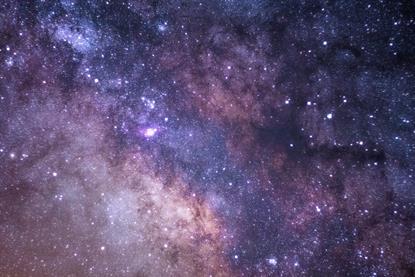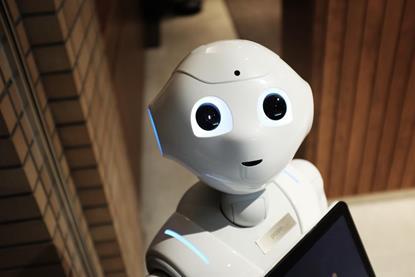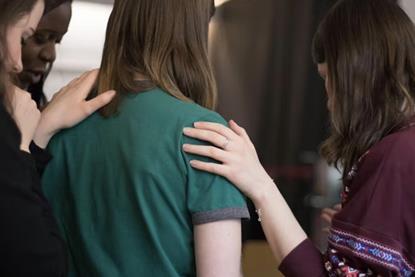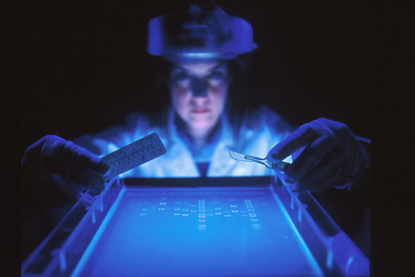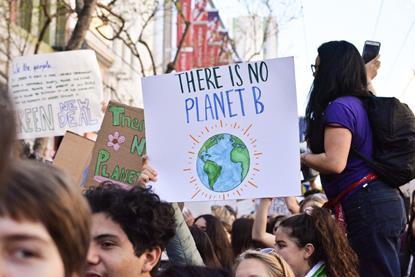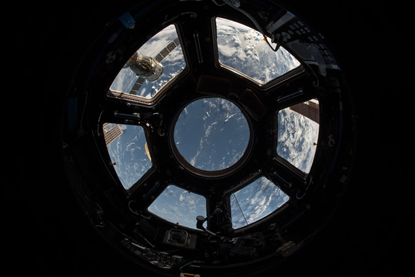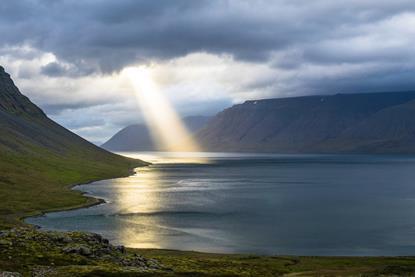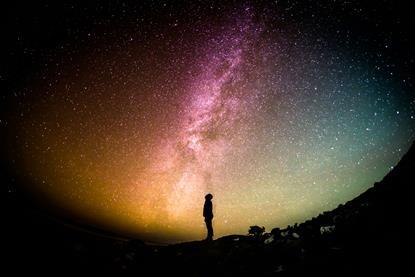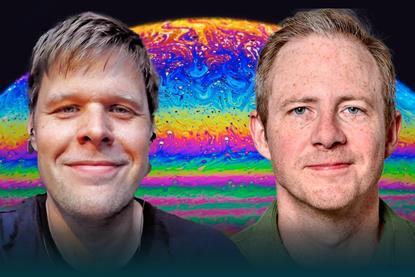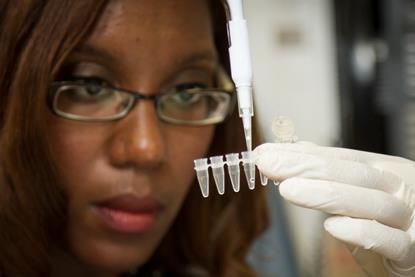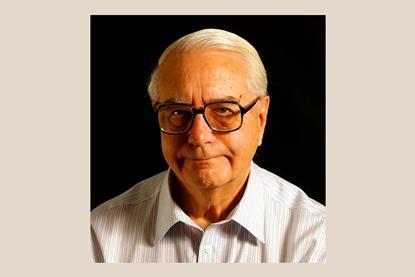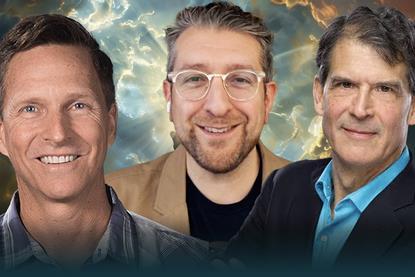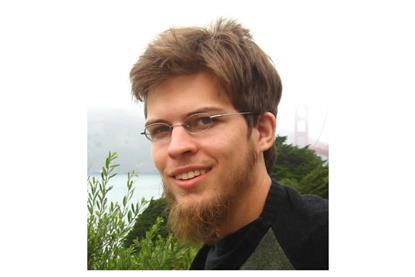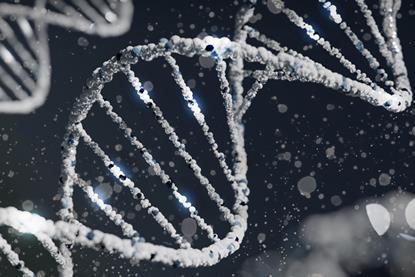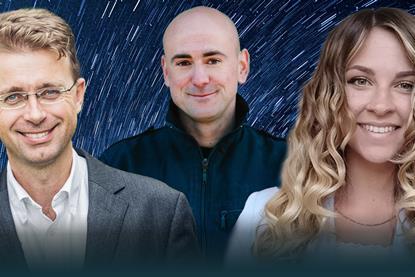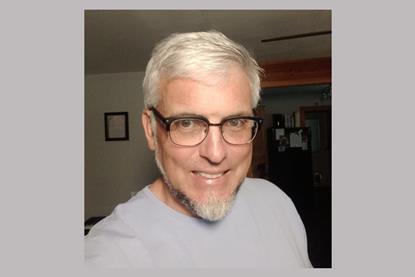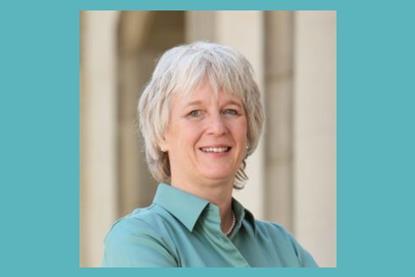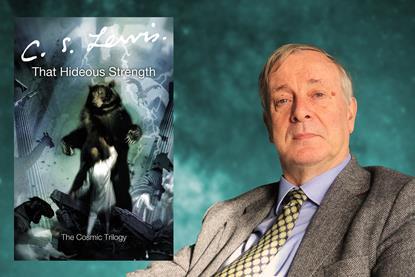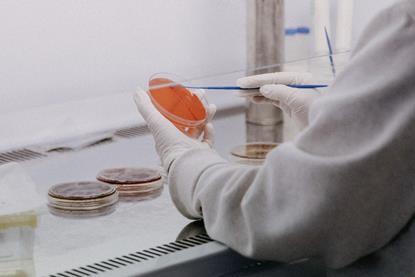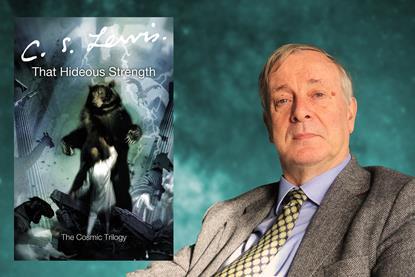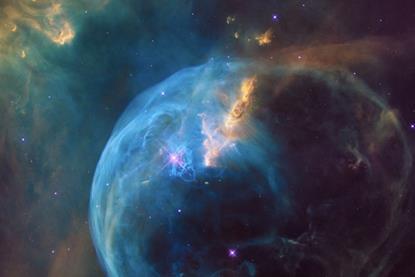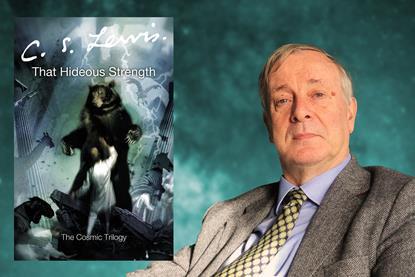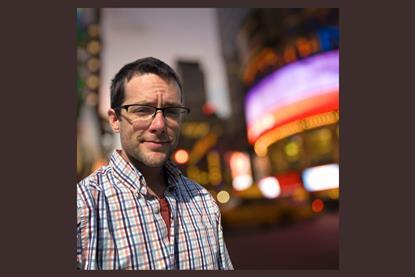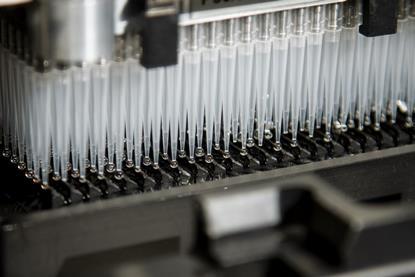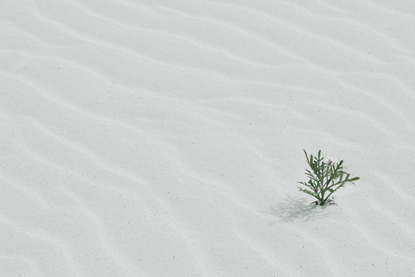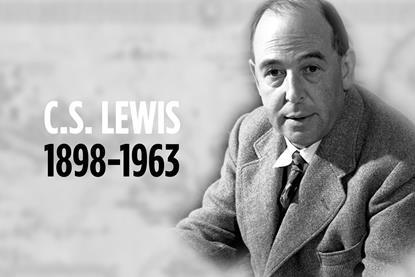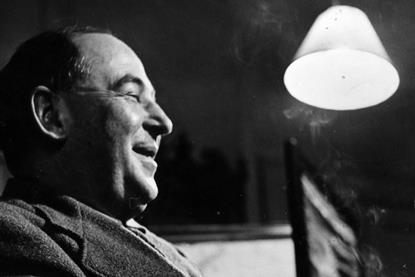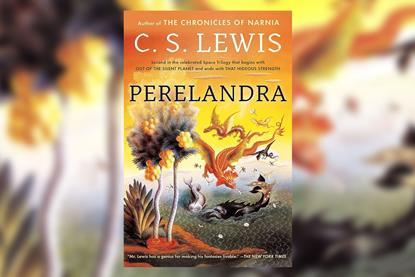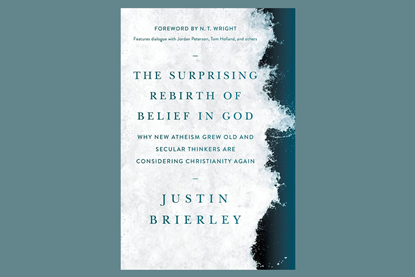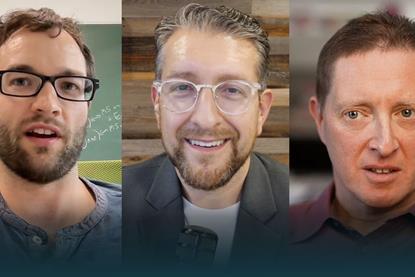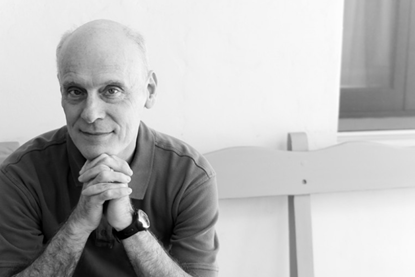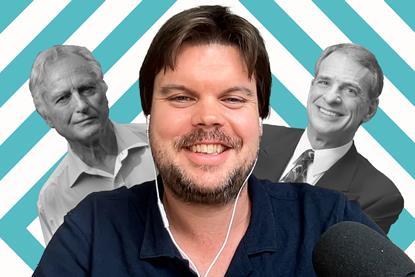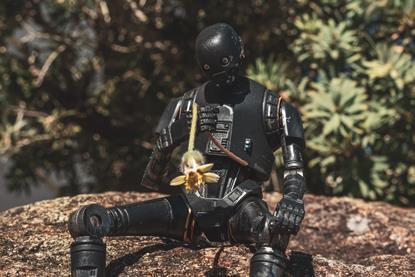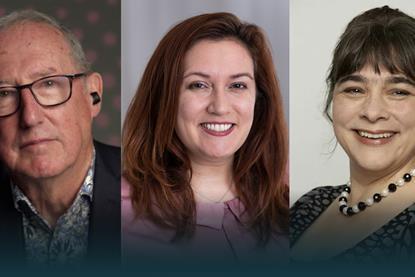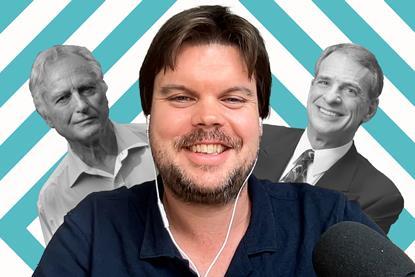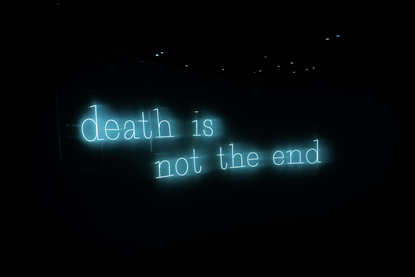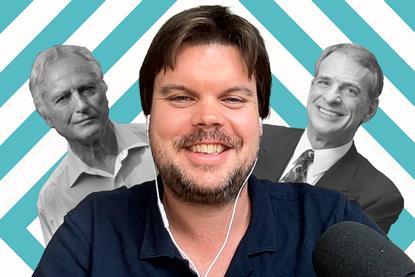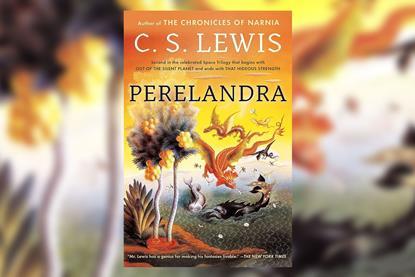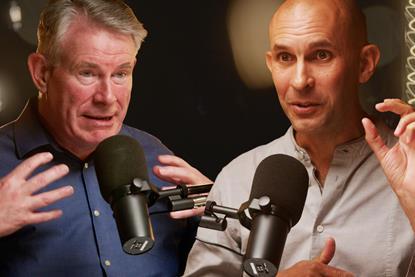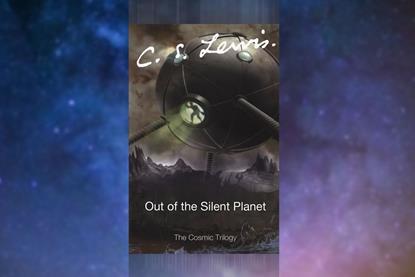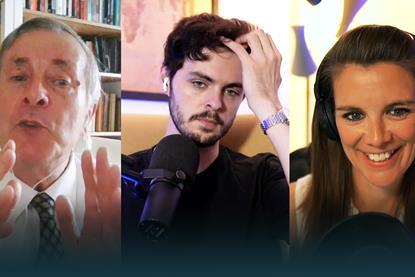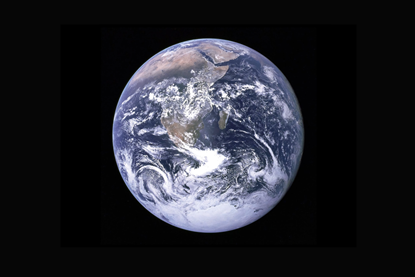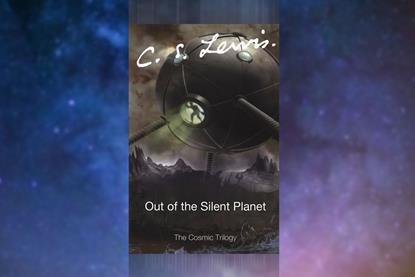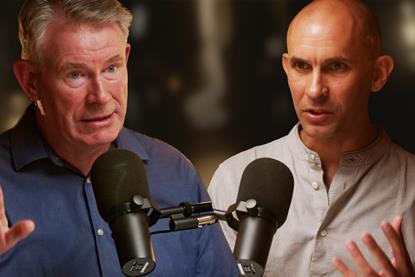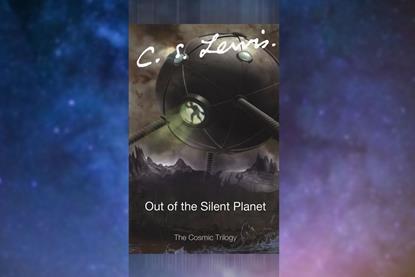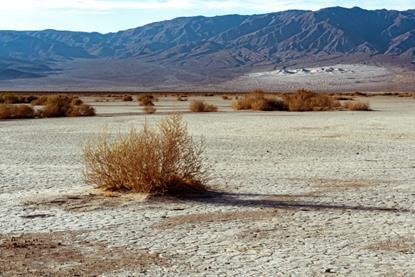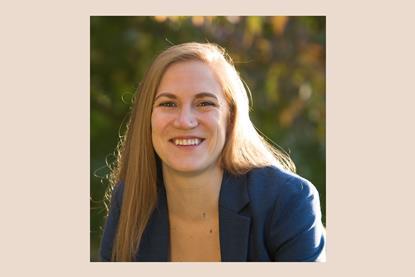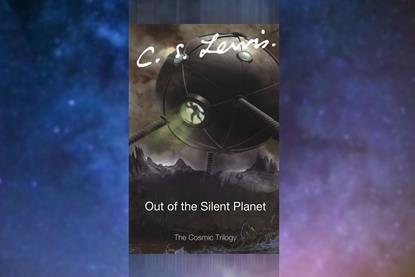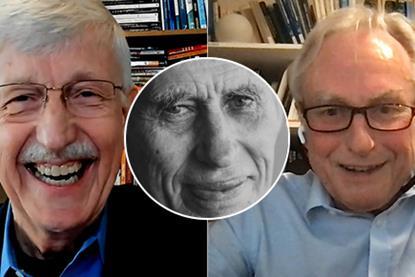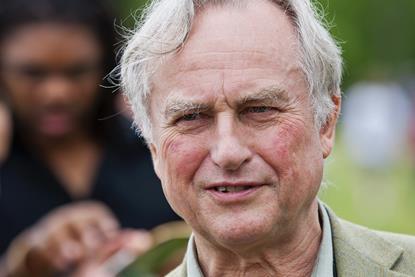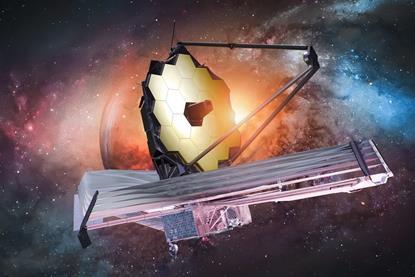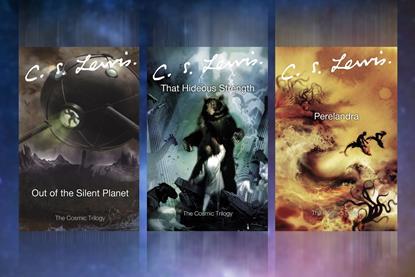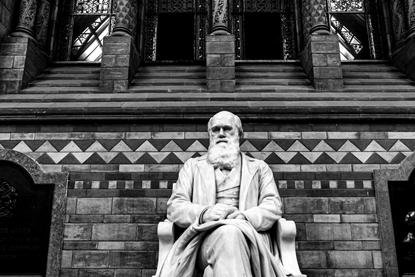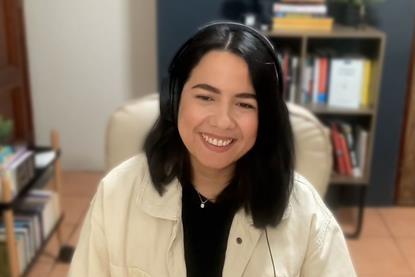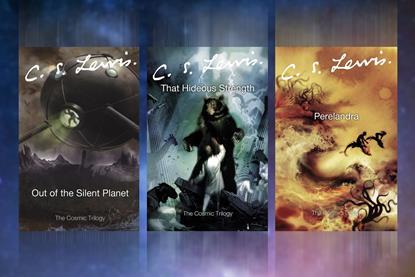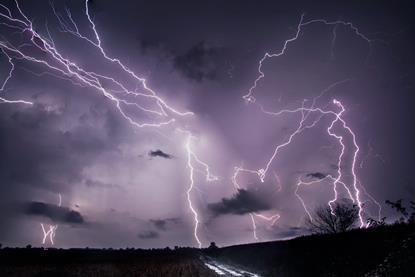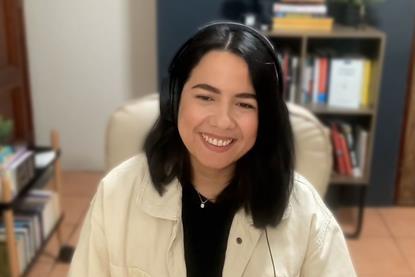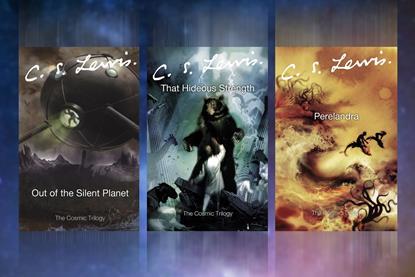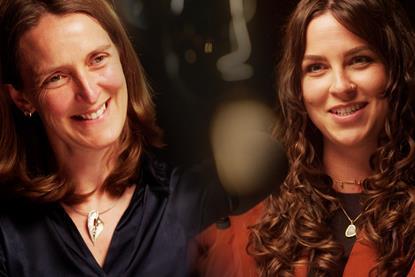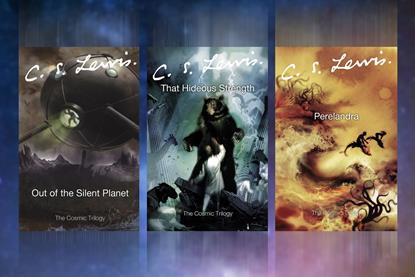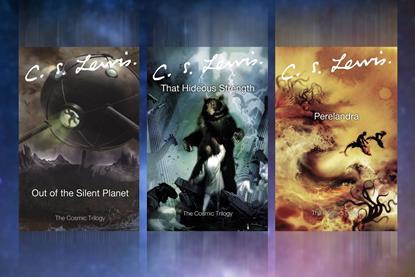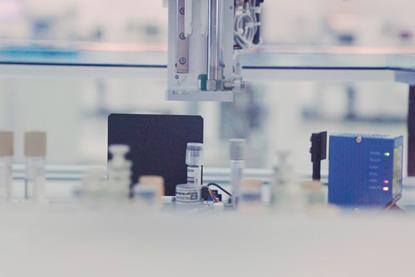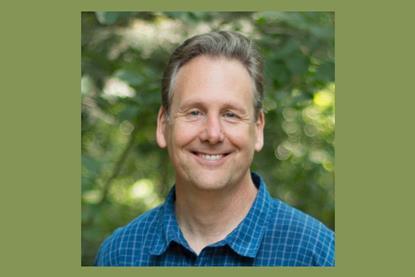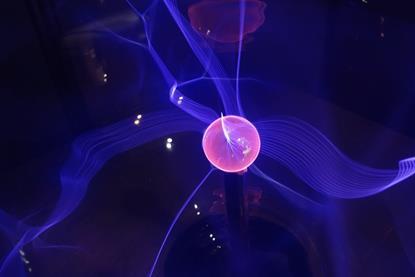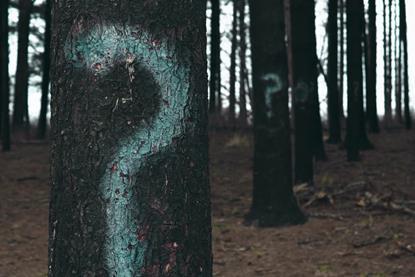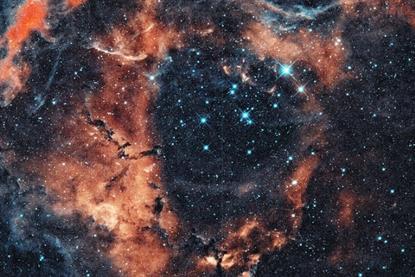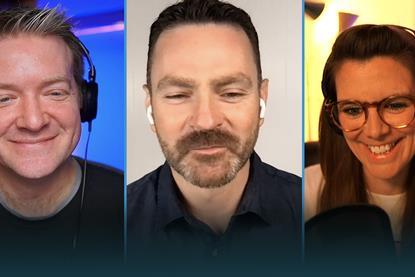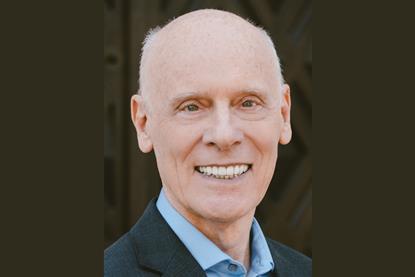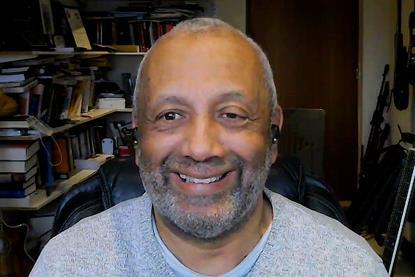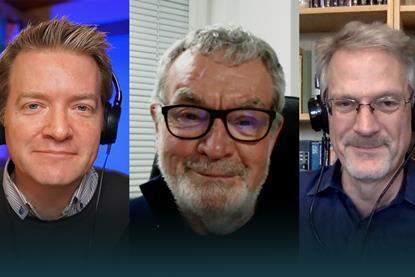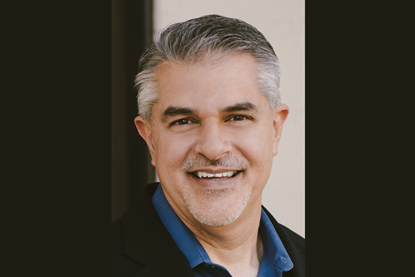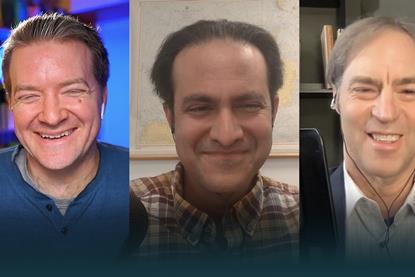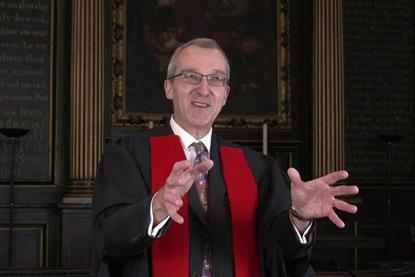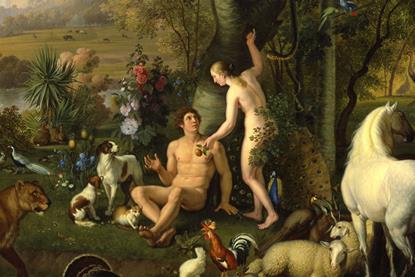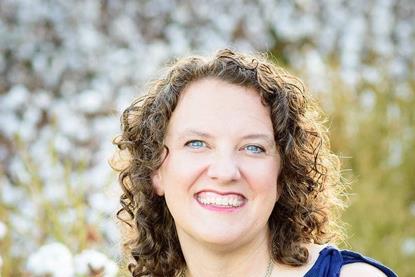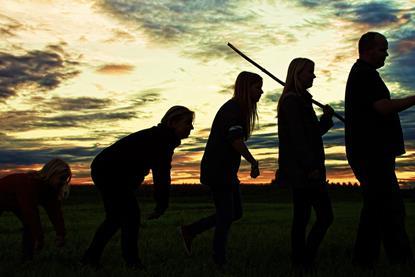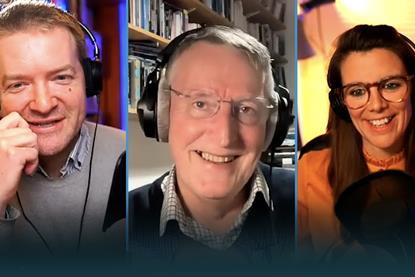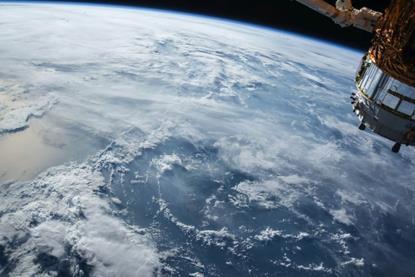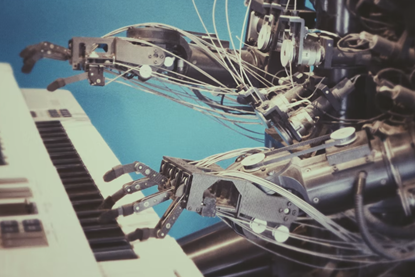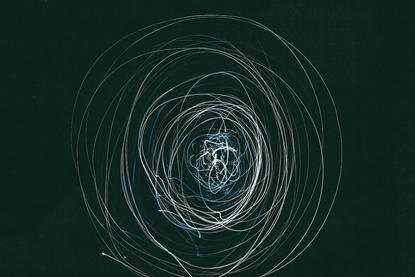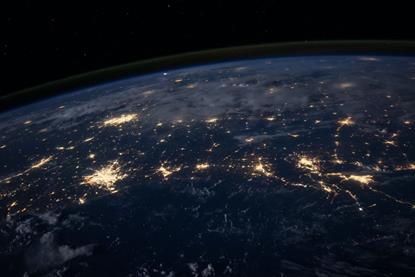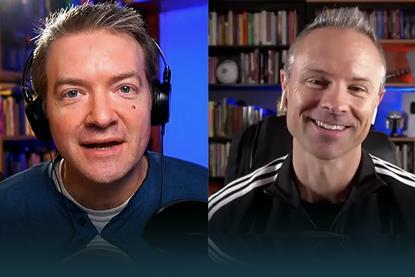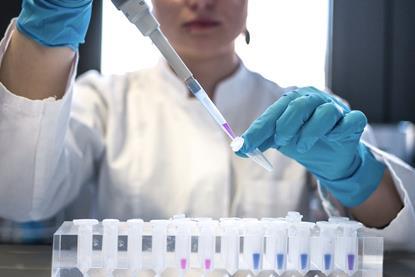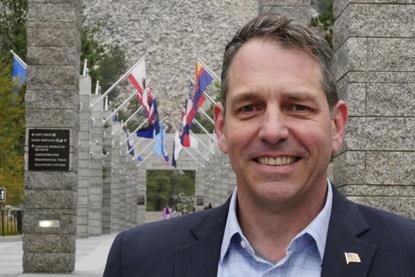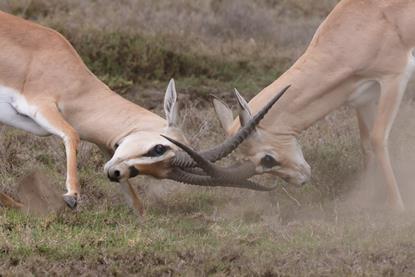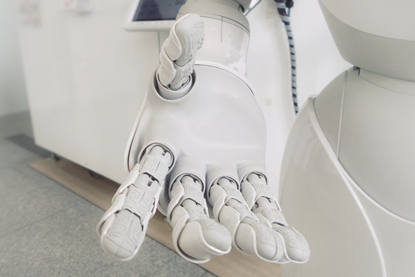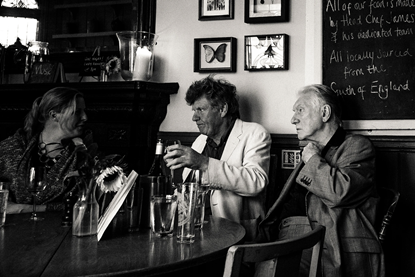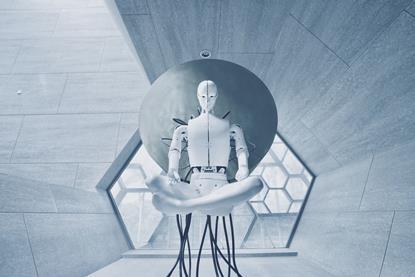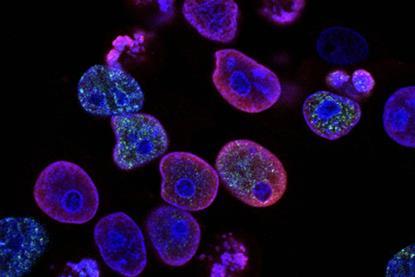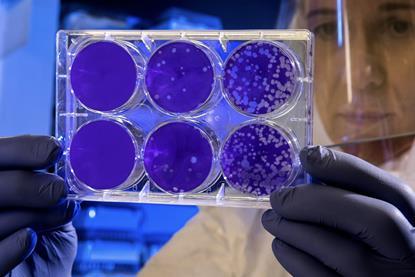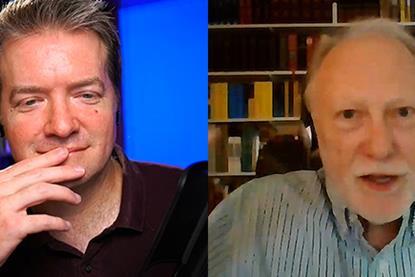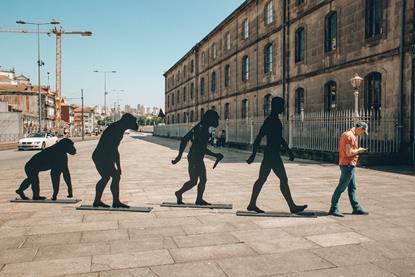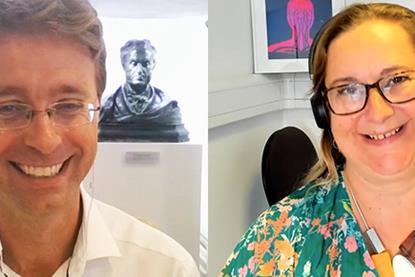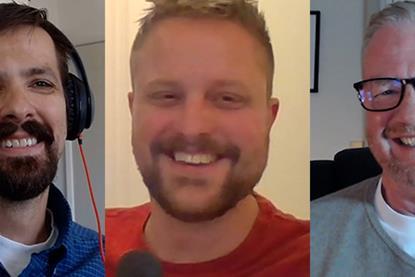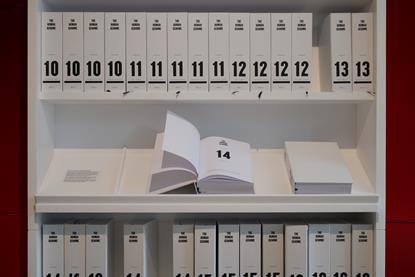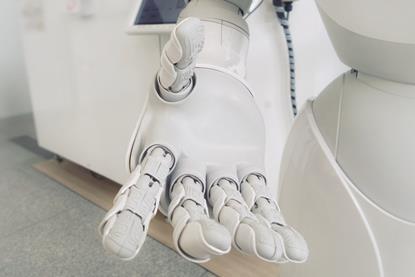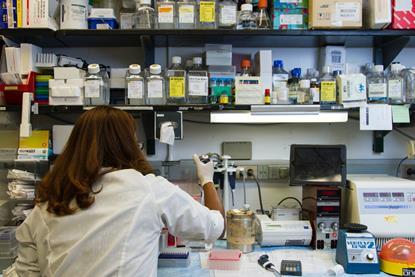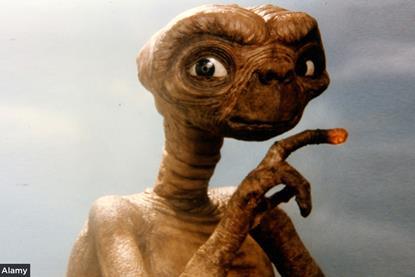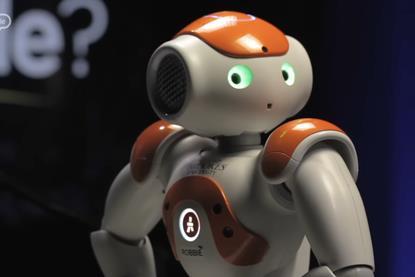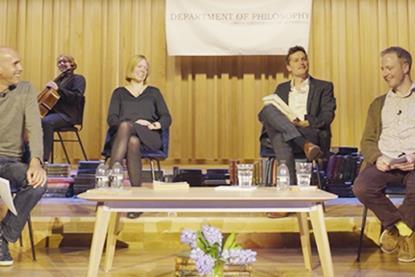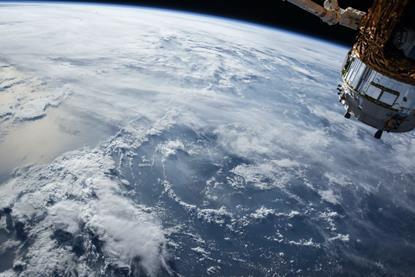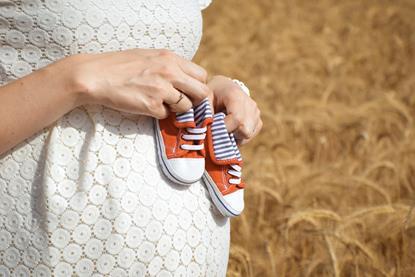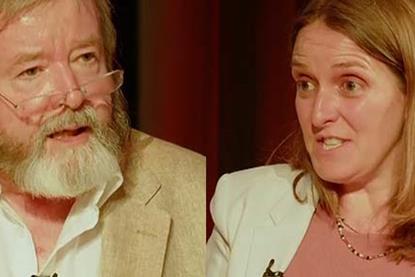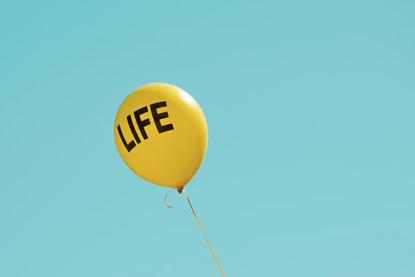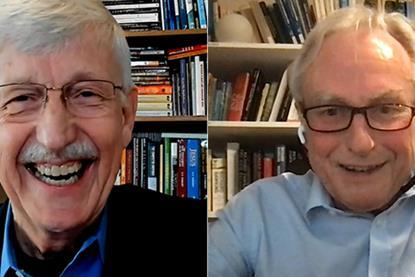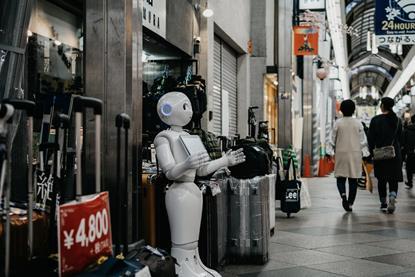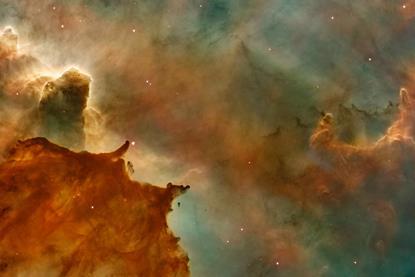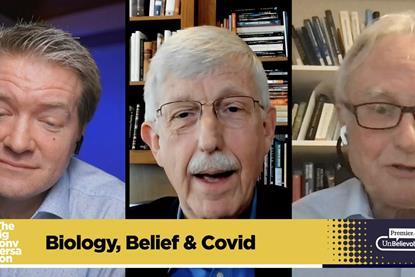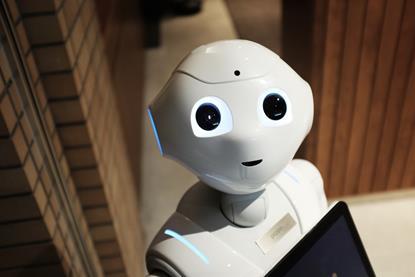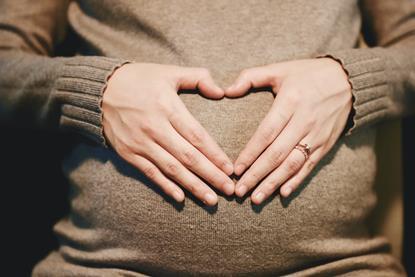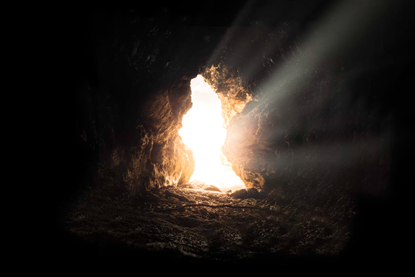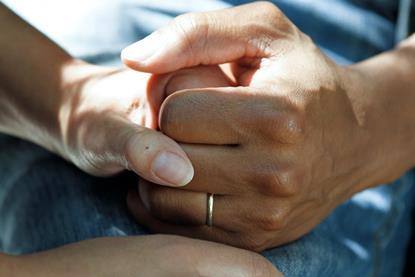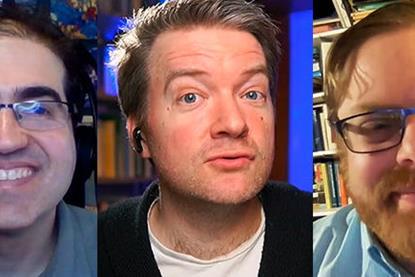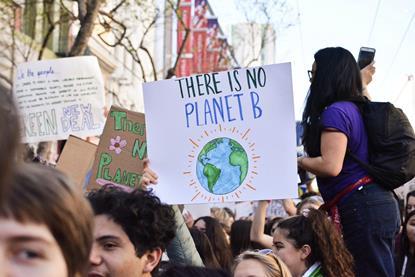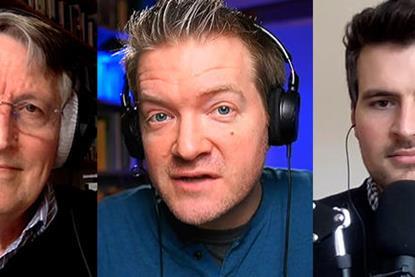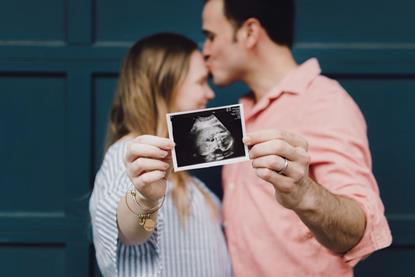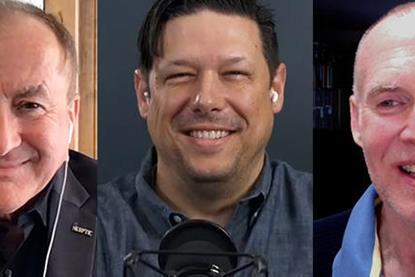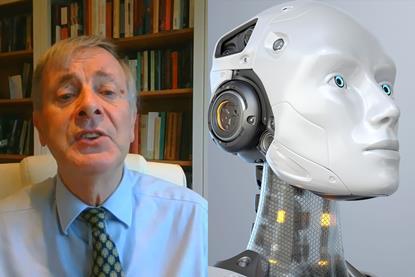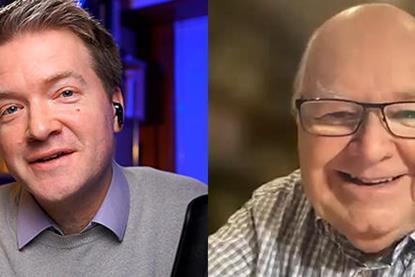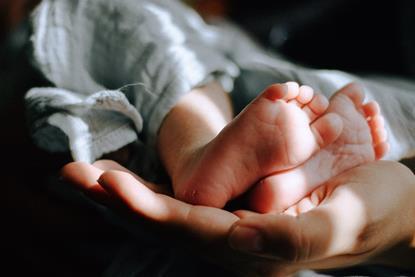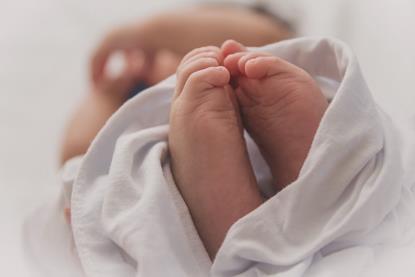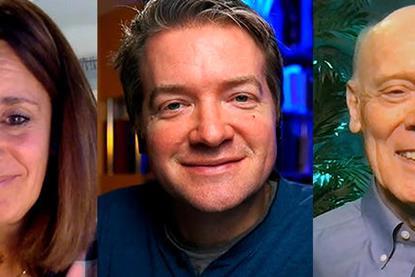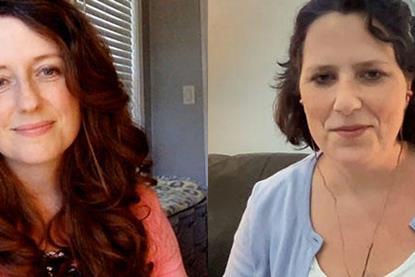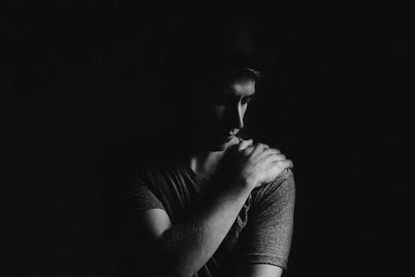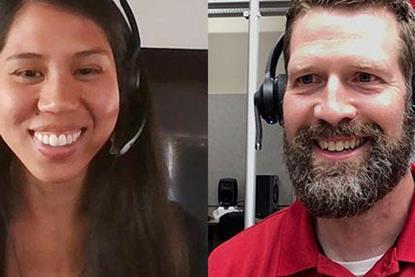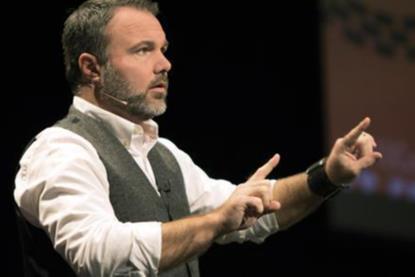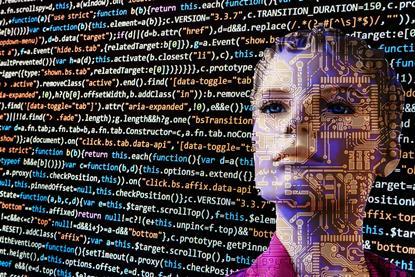Science
Science and the God Hypothesis: Is There Evidence for a Creator in the Modern Scientific Age?
Debates about fine-tuning, complexity and the origins of information continue to shape conversations at the intersection of science and religion. Erik Strandness explores why the resurgence of the God hypothesis is compelling both sceptics and believers to take a fresh look at the evidence.
Beyond Naturalism: What’s Real? Dr. Alex Carter vs Dr. Zachary Ardern - Hosted by Sam McKee
What is really real? In this wide-ranging conversation, Dr Zachary Ardern (evolutionary biologist, Wellcome Sanger Institute), Dr Alex Carter (philosopher, University of Cambridge), and Dr Sam McKee (science historian, Manchester Metropolitan University) sit down to revisit one of the oldest debates in human thought — the relationship between science, religion, and ultimate reality.
Atoms, Aliens and the Meaning of Everything: Paul Ewart vs Simon Walker-Samuel hosted by Sam McKee
Premier Unbelievable guest-hosted by Dr Sam McKee heads to John Colet School in Wendover, UK for a lively debate on science, religion and reality with Oxford atomic & laser physicist Prof Paul Ewart (Christian; former Faraday Institute director, ex-president of Christians in Science) and UCL biophysics & imaging expert Prof Simon Walker-Samuel (trustee, Humanists UK).
Big Bang, fine-tuning and the limits of science – can cosmology point us to a Creator?
Unbelievable? host John Nelson reflects on a debate he hosted between Niayesh Afshordi and Michel-Yves Bolloré about whether cosmology and the Big Bang prove the existence of God—or reveal deeper cosmic mysteries. John Nelson asks, Does Cosmology Prove the Existence of God?
Do we have a soul? Or are we just bodies and brains? Is death the end? Dr Claire Gilbert vs Harry Amos
In this live edition of Unbelievable?, Andy Kind hosts a fascinating conversation on the nature of the soul and spiritual experience.
Euthanasia for newborn babies, pagan philosophies and Christian witness in a post-Christian age
This episode explores the ethical and cultural challenges posed by proposed euthanasia laws for newborns in Canada. It examines the contrasting philosophies behind medical decisions for babies, the early church’s radical witness against pagan practices, and how Christians today can uphold the full dignity of every child in an increasingly post-Christian world.
How we all came to think science and religion were at war
This classic MOLAD episode features Nick Spencer, author of Magisteria, exploring the myth that science and religion are natural enemies. The conversation uncovers the complex history behind this idea, asks whether faith and science really need to be kept separate, and reveals the overlooked spiritual lives of some of history’s greatest scientists.
Can AI Create or Feel? Dr Amna Whiston & Dr Alex Carter debate Human vs Artificial Intelligence
What does it really mean to think, create, or feel? Are we losing our humanity in the age of AI - or discovering it anew? In this live schools debate with Aylesbury Youth For Christ, Premier Unbelievable? host Andy Kind is joined by Dr Amna Whiston (Oxford) and Dr Alex Carter (Cambridge) to explore the limits of artificial intelligence.
AI, Meaning & the Logos: John Lennox vs John Vervaeke on the Future of Faith and Humanity
What does it mean to be truly human in an age of artificial intelligence, declining religious belief, and rising spiritual hunger? Oxford mathematician and Christian apologist Professor John Lennox and cognitive scientist Dr John Vervaeke of the University of Toronto explore whether AI threatens or reveals our uniqueness, if meaning can exist without God, and whether spiritual transformation is possible in a post-religious age.
The CS Lewis Podcast #215 Alister McGrath: Exploring The Discarded Image (Part 2)
In part two, Ruth Jackson and Alister McGrath explore how CS Lewis saw the links between science, philosophy, and faith. They discuss his view that science can point to deeper truths, his idea of Christianity as the “true myth,” and his belief that scientific theories aren’t final facts.
The CS Lewis Podcast #214 Alister McGrath: Exploring The Discarded Image (Part 1)
Ruth Jackson speaks with Alister McGrath about CS Lewis’ final book, The Discarded Image, a reflection on the medieval view of the cosmos. Why did Lewis care so much about this old model of the universe, and what does it reveal about his views on science, imagination, and faith? They explore Lewis’s description of a geocentric, ordered world and how it contrasts with today’s scientific and secular worldview. Could this older picture still speak to us today? And how did Lewis understand the relationship between science and the biblical creation story?
The CS Lewis Podcast #213 Alister McGrath: CS Lewis on science, AI & technology (Part 2)
Alister McGrath reflects on how Lewis’ ideas might speak into today’s rapidly advancing technologies.
The CS Lewis Podcast #212 Alister McGrath: CS Lewis on science, AI & technology (Part 1)
In this episode, Ruth Jackson speaks with Alister McGrath about Lewis’ views on science, technology, and ethics.
Does science prove God?
Sam McKee hosted a recent Unbelievable? discussion between Paul Ewart, Emeritus Fellow of Worcester College, and Phil Halper, YouTuber and Fellow of the Royal Astronomical Society, regarding the role of science in fostering or discouraging belief in God.
A Lion, a Lamb, and a Lab Coat - The Hope for Unity in Science and Faith
The final part of a four-part series: From Theistic Evolution to Intelligent Design: Why I changed my mind
When the Stones Cry Out - Intelligent Design and the Voice of Creation
Part 2 of a four-part series: From Theistic Evolution to Intelligent Design: Why I changed my mind
The CS Lewis Podcast #205 Alister McGrath: Lewis on science and evolution
In this episode, Ruth Jackson speaks with Alister McGrath about Lewis’ views on evolution and science. What did Lewis believe about evolution, and how did he separate it from philosophical naturalism? Did he think evolution could explain things like morality and consciousness?
Wrestling with the Divide - Why I Couldn’t Keep Faith and Science Apart Anymore
Part 1 of a four-part series: From Theistic Evolution to Intelligent Design: Why I changed my mind
The CS Lewis Podcast #204 Alister McGrath: Lewis on science, miracles and materialism
In this episode, Alister McGrath reflects on what Lewis thought about miracles and science. Did he think miracles could make sense in a world ruled by natural laws? Can someone believe in both science and the supernatural? They also look at Lewis’s response to the ideas of HG Wells, who believed science and religion didn’t mix. Were Wells’ views common in Lewis’s time, and do we still see them today? And how might Lewis’s ideas help us think about science and faith today?
The CS Lewis Podcast #203 Alister McGrath: How CS Lewis bridged the gap between faith and scientific understanding
In this second episode of our mini-series on CS Lewis and science, Ruth Jackson continues the conversation with Professor Alister McGrath. They explore how Lewis challenged the supposed conflict between science and religion, offering instead a richer vision where both disciplines illuminate reality.
The CS Lewis Podcast #202 Alister McGrath: What did CS Lewis think of science? Part 1
In part 1 of our new series on science, Ruth Jackson is joined by Alister McGrath to explore how CS Lewis approached the relationship between science and religion.
Does science point toward or away from God? Phil Halper vs Professor Paul Ewart (Oxford Physics) hosted by Sam McKee
Dive into the ultimate debate: Can science truly bring us closer to understanding God, or does it push us further away? Join Sam McKee with experts Paul Ewart & Phil Halper for a journey through the cosmos and beyond in our latest podcast episode
Do Christian believers in evolution miss the most important arguments?
Erik Strandness reflects on a debate between a Christian evolutionist and an atheist, and wishes some more intelligent designs were acknowledged
Faith vs. Science: does DNA editing challenge God’s plan/existence? Nick Spencer vs Sam McKee
In this gripping episode of Unbelievable? we’re diving into one of the most controversial and thought-provoking debates of our time: the future of human evolution. 🧬 Will Genetic Engineering Reshape Humanity? Will AI Make Us Gods? 🌍 Can Faith Keep Up? 🤖 With the power of AI and genetic modification at our fingertips, are we playing God— or simply fulfilling our human potential?
Is the Universe 5 minutes old? Did the universe begin with a cause? Dan Linford vs David Lu Debate the Kalām Cosmological Argument
How do we know the age of the Universe, really? Today’s guest suggests atheists should believe our world is actually 5 minutes old… no, seriously!!
The ethics of embryology: ‘Ensoulment’, the 14-day limit and co-operation with evil
There has been a flood of highly significant if poorly reported developments in embryo research in recent years, all of which raise new and confusing questions for Christians and non-Christians alike. Is it acceptable to use stem cells to create embryo-like structures to research on?
God vs Science Debate with Peter Atkins and Keith Fox
Ruth Jackson returned to school to host this lively debate between Peter Atkins, renowned atheist and scientist, and Keith Fox, Christian biologist and theologian. In front of a live young audience, they explore one of the most profound questions: Is religion, just wishful thinking? Atkins and Fox tackle the big questions at the intersection of science, faith, and ethics, including: Are we just matter? Can science explain everything, or are there questions beyond its scope? Will further advancements in technology—like space exploration, genetic modification, and AI override any need or belief in God? From the accusation of “playing God” in genetic engineering to the nature of consciousness in artificial intelligence, this conversation challenges assumptions about what it means to be human and the role of faith in a scientific world.
Should We Have the Right to Die? The Assisted Dying Debate in the UK Neil McKain vs Prof Keith Brown
As the UK prepares for a crucial parliamentary debate on the Assisted Dying Bill, the Unbelievable? podcast delves into this emotionally charged issue. Unlike in countries such as the USA, Canada, and the Netherlands, assisted dying remains illegal in the UK—but that could soon change.
Science, faith and the future of humanity Denis Alexander v Julian Baggini hosted by Andy Kind
In this episode of Unbelievable?, host Andy Kind brings together two thought-provoking voices to explore the intersection of science, faith, and the future of humanity.
#122 Mirjam Schilling: Why did God create mosquitoes?
Virologist and theologian Dr Mirjam Schilling answers questions asked by a live audience at Holy Trinity Church, Aylesbury. This show was recorded in partnership with Aylesbury Vale Youth For Christ.
Christianity does not hold back technological progress: it inspires it
The Bible is a book written by ignorant “Bronze Age goat herders,” according to many internet atheists across the world.
🌍✨ Should we edit the human genome, or is that playing God? 🧬 John Wyatt vs Sam McKee hosted by Andy Kind
With the revolutionary gene-editing technology CRISPR—winner of the 2020 Nobel Prize in Chemistry 🏆—we now have the power to potentially eradicate diseases that have caused untold suffering. But where should we draw the line? 🤔
Who are the ‘New Atheists’ and are they right about God?
What caused the once-popular movement of militant atheists to develop, and are they correct to say that belief in God is dangerous and rational science is the answer?
Does DNA’s language point to a creator?
The complexity and communicative qualities of our genetic building blocks are not easily explained by science, but instead point to intelligent design, argues Joel Furches
How the Universe Points to God: a summary of two cosmological arguments
Apologist Clinton Wilcox explores two fascinating rational justifications for believing in God that use the science and philosophy of the Universe
Should robots be given human rights?
A classic episode from the MOLAD vault today: If and when autonomous and intelligent robots come into existence, should they be granted rights, or even personhood? A growing number of technologists argue governments must lay out what status conscious and rational machines would have before they actually have been invented.
Light in the darkness? What the Church can offer someone suffering with depression
Apologist Joel Furches explores the relationship between Christianity and psychiatry, and asks why Christians suffer from depression when they are promised joy?
Atheism and the ignorance of science
Clinical Academic Ken Miles considers whether greater scientific knowledge could lead to a rejection of scientific atheism
Questioning climate anxiety
Journalist Heather Tomlinson explores a recent Unbelievable? conversation discussing climate change and summarises a number of other voices on the topic
How churches can embrace science: insights from scientist-Bishop Richard Cheetham
Former Bishop Richard Cheetham, with a background in physics and theology, argues for a harmonious relationship between science and faith. Discover how churches can engage with scientific advancements to enrich their ministry.
There’s a brand new argument for the existence of God: here’s a simple(ish!) explanation of the ‘problem of psychophysical harmony’.
Theism has been a hot topic in philosophy in recent years, and many academics now say there are very good arguments for the existence of God on the table.
Matter of Life & Death: Physics and the gospel: Richard Cheetham on how churches can embrace science once more
Despite reams of research debunking the myth and countless examples of pioneering Christian researchers, many people still believe intuitively that somehow science and religion are in constant conflict.
Unbelievable? Psycho-Physical Harmony: can natural selection alone explain experiential rationality? Philip Goff v Dustin Crummett hosted by Andy Kind
Why do we tend to go for an experience that feels good and when something feels bad, we tend to avoid it? Why are conscious experiences and behaviour paired together in the most rational way? The Unbelievable podcast unpacks the mystery of psycho-physical harmony with Philip Goff, Professor Philosophy at Durham University (an atheist) as he debates Dustin Crummett, a Christian philosopher.
Matters of Life & Death: How much is too much to genetically screen your children?
In the first half of this episode we explore new research into public opinion around polygenic embryo screening. This technology allows people undergoing IVF to see what genes each potential embryo has and then choose to reimplant the one with the ‘best’ genetic make-up.
Is intelligent design a viable option?
Neonatal consultant Erik Strandness explores scientific method and the intelligent design movement in light of an Unbelievable? conversation on the topic
Christians in Science: How faith helps rather than hinders my chemistry
Apologist Joel Furches speaks to chemist Edgar Andrews about Christianity, science and the Bible
Unbelievable? Proof of the afterlife? John Burke and Dr Eben Alexander MD hosted by Billy Hallowell
Everyone from Madonna to top neuroscientists and millions of other people around the world report personal, unforgettable near-death experiences or NDEs. Do these NDE accounts prove the existence of a loving God? This week on Unbelievable? Pastor and author John Burke, who has studied and examined over 1,000 accounts of near-death experiences, explains these reports provide faith-building evidence of God and the Bible.
Christians in Science: How a particle physicist finds harmony between the Bible and science
Particle physicist Aron Wall has loved both God and science from a young age. Here, apologist Joel Furches shares some of Aron’s life and thoughts
What part of our body could stretch all the way to Pluto?
Dr Ruth Bancewicz from the Faraday Institute shares some fascinating facts about DNA on DNA day
Unbelievable? Why do humans try to play God? Nick Spencer vs Emily Qureshi Hurst hosted by Andy Kind
For too long, the ‘science and religion’ debate has fixated on creation, evolution, cosmology, miracles and quantum theory, and not enough on the essence of what it means to be human. But this is a mistake argues one of our guests today, Christian academic Nick Spencer, Senior Fellow at Theos, in his new book ‘Playing God: science, religion and the future of humanity.’ Back on the show is Emily Qureshi-Hurst expert on the philosophy of time.
Atheism’s limits: How a sceptical neuroscientist rediscovered Jesus
Researcher Jana Harmon shares how neuroscientist Dr Rich Suplita found his New Atheism wanting, prompting him to look for answers in Christianity
Christians in science: How a microbiologist became an apologist
Dr Anjeanette ‘AJ’ Roberts is a microbiologist and a Christian. Joel Furches spoke to her about her faith and career
The CS Lewis Podcast #145 That Hideous Strength: Was Lewis sexist?
Alister McGrath looks at what Lewis thought of women, sexuality and marriage. Are any of the characters in That Hideous Strength based on people Lewis knew? What was he trying to convey through their depiction?
Was God the first scientist?
John Van Sloten, author of God Speaks Science, looks at why science is one of the Church’s greatest allies. Read his first and second instalments of this mini-series here – ‘Jesus speaks supernovae’ and ‘Does God still bring water from rocks?’
Does God still bring water from rocks?
In his second instalment (read part 1 ‘Jesus speaks supernovae’ here), John Van Sloten, author of God Speaks Science, shares how God uses both the Bible and creation to reach us
The CS Lewis Podcast #143 That Hideous Strength: Is technology dangerous?
Alister McGrath explores how CS Lewis addresses the perceived conflict between God and science. What insights can Lewis give about pertinent issues such as the atomic age, eugenics and Artificial Intelligence? When does technology becomes technocracy and why was Tolkien so anti tech? What are some of the ways religion is being challenged and how does Lewis expose these critiques?
Jesus speaks supernovae
John Van Sloten, author of God Speaks Science, reflects on a conversation with a Mars Rover researcher
The CS Lewis Podcast #142 That Hideous Strength: What is the future of humanity?
Alister McGrath continues to dive into some of the key themes in the final book of CS Lewis’ science fiction trilogy. What will happen to the human race? How can we change our future? What is the point of scientific experimentation? Alister also looks at how Lewis engages with HG Wells.
Making sense of reality: How an atheist philosopher discovered Jesus via paganism
The horrific terror attack of 9/11 cemented in Patrick Flynn’s mind that religion was not only untrue and irrelevant, but also troublesome. Jana Harmon explores how rigorous study and existential questions led Pat to change his mind
Matters of Life & Death: Genetics: Libraries of recipe books, BRCA1, Gattaca, and Big Data Towers of Babel
A final classic episode to see us through the Christmas and New Year break. Today we’re returning to an interview with NHS geneticist Melody Redman.
Did life begin in an instant of pure chance? - a complaint to the BBC
Retired vicar Graham Buttanshaw wrote to the BBC to complain about some of the assumptions made in their Earth series
The CS Lewis Podcast #133 Alister McGrath: Was Lewis a prophet and does he speak to contemporary cultural issues?
Professor Alister McGrath and Ruth Jackson continue their discussion about whether CS Lewis is still relevant. Was he something of a prophet? What can we learn about the way Lewis engaged with modern media? How did he make complicated theological concepts relatable? In what ways has Lewis influenced our culture and is he able to speak to contemporary topical issues, such as transgenderism?
The inaugural CS Lewis Reading Day: Why should Tolkien geeks have all the fun?
CS Lewis podcaster, David Bates, shares why he helped initiate a campaign to commemorate Lewis with an annual Reading Day on November 29th
Matters of Life & Death: Science and religion 1: The myth of conflict, Charles Darwin’s beetle research, epistemic humility, English country churchyard or Californian fridge?
This week’s guest is Nick Spencer, senior fellow at the faith thinktank Theos, and recent author of Magisteria: The entangled histories of science and religion.
The CS Lewis Podcast #128 Perelandra: It’s not for nothing that you are named Ransom
Looking at Perelendra, Alister McGrath explores key questions raised by CS Lewis: What is good? Should we be frightened of God? What is significant about Ransom’s name?
Is there a rebirth of belief in God?
Erik Strandness reviews Justin Brierley’s new book
Unbelievable? Is there a conflict between religion and science?
Can you be a serious scientist and believe in God, and even believe in miracles?
Christians in science: Why an astronomer believes the Bible is reliable
Apologist Joel Furches interviewed astronomer Dr Hugh Ross about science and his belief in God
Unapologetic #73 Peter Byrom: Dawkins’ argument from complexity
In the final part of their discussion, Peter Byrom delves into Dawkins’ argument from complexity, suggesting it may be a circular assumption. They unpack Dawkins’ fascinating exchange with Francis Collins in 2022, where Dawkins admits he may have a presupposition towards materialism. Plus, what does the future hold?
Is AI conscious and does it matter?
Dr Eve Poole considers whether we have to learn to be responsible for the souls we are creating now we are creating artificial intelligence and robots in our own image
Unbelievable? Should our AIs and robots have souls?
Should we be fearful or make friends with our robot helpers? And how can humans flourish in this brave new world? One of our guests today on Unbelievable believes the hidden power of humans is that we are imperfect yet essential?
Bennu the asteroid: Why does the Universe exist and why should we care?
Nasa’s Osiris-Rex returned from a seven-year mission with asteroid Bennu’s dust, aiming to shed light on the Universe’s formation. Erik Strandness examines the project’s theological and philosophical impacts.
Unapologetic #72 Peter Byrom: Disillusioned with Dawkins
Peter Byrom continues to share his faith journey as told in the chapter he contributed to Coming to Faith Through Dawkins. He discloses how challenging Richard Dawkins on why he wouldn’t debate William Lane Craig led to him becoming something of a YouTube sensation! Peter also shares why he believes apologetics is important and what the final nail in his atheist coffin was.
What can we learn from near-death experiences?
Journalist Heather Tomlinson continues her exploration on near-death experiences in light of a recent Big Conversation on this topic
Why secular sceptic Nir Eyal thinks we need Church
Theology student David MacPherson reflects on a recent episode of The Diary of a CEO, where Nir Eyal discussed the benefits of church and a worshipping community
Unapologetic #71 Peter Byrom: Discovering Dawkins
In the first episode of this three-part series, Peter Byrom shares his fascinating story as told in the chapter he contributed to Coming to Faith Through Dawkins. He outlines how he encountered the apologist William Lane Craig via the New Atheists and discusses his growing disillusionment with Dawkins’ “devastating” argument from complexity.
The CS Lewis Podcast #124 Perelandra: Scientism, spirituality and magic
Professor Alister McGrath explores the second book of CS Lewis’ space trilogy, Perelandra, looking at some of its key themes, characters and questions. Could the Fall have been prevented? What if it hadn’t happened? How did Lewis perceive magic? Where do we find meaning? Is there a limit to science?
Unbelievable? The Robot Race - Part 2: How should humanity flourish in an AI world? - Nigel Crook & Anil Seth
The Big Conversation - Episode 6 | Season 5
The CS Lewis Podcast #123 Out of the Silent Planet: Death, suffering and The Fall
In the final episode on Out of the Silent Planet, Alister McGrath explores Lewis’ depiction of humanity, death, evolution and suffering. He also discusses the framework Lewis provides to help us reflect on these big questions.
Unbelievable? Coming to faith through Dawkins - Part 2: Is there a new New Atheism? Alister McGrath & Alex O’Connor
In the second part of their discussion based on the book Coming to Faith Through Dawkins, theologian Alister McGrath and YouTuber Alex O’Connor discuss where we may be heading in regards to religion and atheism.
Is the presence of God merely an illusion? A scientist investigates
Ken Miles, clinical academic and author of From Billiard Balls to Bishops: A Scientist’s Introduction to Christian Worship, explores whether we can feel the presence of God in an age of science
Matters of Life & Death: Q&A: The science of the billions-of-years-old Earth, has God deceived us, and are philosophers so useless after all?
Our latest episode tackling questions from the listeners starts by considering whether we can harmonise a belief in modern science and a literalistic reading of the Genesis account of creation.
Will AI replace us?
Author Darren Richards reflects on artificial intelligence, looking at the value of human leaders
The CS Lewis Podcast #122 Out of the Silent Planet: Love, sex and intuition
Alister McGrath continues to explore Out of the Silent Planet, looking at some of CS Lewis’ language around love and sex. He also looks at the different life forms on Malacandra and the distinction between rational and non-rational life forms.
Unbelievable? The Robot Race - Part 1: Could AI ever replace humanity? - Nigel Crook & Anil Seth
The Big Conversation - Episode 5 | Season 5
Is there more to life than mere matter?
Dr Erik Strandness explores the relationship between the soul, mind, brain, body and spirit following a recent Big Conversation about near death experiences
The CS Lewis Podcast #121 Out of the Silent Planet: Nakedness, science and Ransom
Looking at Out of the Silent Planet, Professor Alister McGrath discusses whether nakedness within the book is significant. Plus, they look at whether CS Lewis is drawing on genuine science and the significance of Ransom’s name.
Do near death experiences contradict Christian belief and doctrine?
Journalist Heather Tomlinson explores near death experiences and theology in light of a recent Big Conversation on this topic
From radical atheist to Christian via rigorous intellectual study
Former atheist, Dr Stefani Ruper, was intellectually convinced of secular atheism, but found that it lacked substantive answers for her life. More than 13 years of scholarly pursuit of truth led her to choose belief in God. Jana Harmon shares her story
The CS Lewis Podcast #120 Out of the Silent Planet: Weston, Devine and JRR Tolkien
As we delve into the first book of the trilogy, Out of the Silent Planet, Professor Alister McGrath looks at some of its key themes. He explores the characters of Weston and Devine, looking at whether they represent particular ideologies and how Lewis exposes issues with their worldviews. Plus, why was JRR Tolkien such a fan of the book?
Unbelievable? Richard Dawkins & Francis Collins Debate (Replay) + Clash with Richard Swinburne + New Big Conversation Episodes Reveal!
We revisit a riveting dialogue from Season 4 of The Big Conversation, from 2022.
It is time to move on from Richard Dawkins
Following a recent Unbelievable? featuring Richard Dawkins, author Dr Peter Harris shares his thoughts about the infamous atheist
Matters of Life & Death: Space: The James Webb Telescope, hobbits of the universe, astrobiology, and 16 billion billion Earth-like planets
This week we have another classic episode of Matters of Life and Death from the archive. We invited theologian Andrew Davison to join us to talk through the spiritual ramifications of cosmology and what light thinking about the wider universe sheds on vital doctrines such as creation and incarnation.
What is a near-death experience and what can it teach us?
Following a recent Big Conversation, journalist Heather Tomlinson explores near-death experiences
The CS Lewis Podcast #119 Has The Space Trilogy stood the test of time?
Alister McGrath concludes his introduction to Lewis’ Space Trilogy by exploring parallels with The Chronicles of Narnia. He offers tips for getting into these three books, speculates why they haven’t been turned into films and shares his favourite moment in the trilogy.
Matters of Life & Death: Evolution: The cosmic watchmaker, a 6,000-year-old Earth, the immorality of mutation, and intelligent uncertainty
Evolution versus creationism is the internal Christian argument which doesn’t go away. We recorded an episode last year exploring this knotty problem and how believers might go about trying to debate it respectfully even if they disagree. We look at the age of the Earth, common descent, natural selection, and the historicity of Adam, Eve and the Fall, to try and shed some light on this murky issue.
Unapologetic #64 Ana Ávila: Has science disproved religion?
Ruth Jackson continues her conversation with Mexican writer Ana Ávila who studied clinical biochemistry. Why is there a perceived conflict between science and religion? Does science contradict the Bible? Can you prove there is a God?
The CS Lewis Podcast #117 Vivisection, mental health, racism and sexism
We dive into some of the important issues explored in Lewis’ Space Trilogy. Why was he so vehemently opposed to animal experimentation? What would Lewis say to those experiencing mental health struggles today? Plus, Alister McGrath responds to the accusation that CS Lewis was sexist and racist.
Are we more than just our brains?
Following a recent Big Conversation, Dr Erik Strandness explores the relationship between the brain and mind, near death experiences, the existence of the soul and the perceived conflict between religion and science
Christians in science: How a military meteorologist became a theologian
Charles Clough is a retired military meteorologist who became a Christian while at MIT. Apologist Joel Furches spoke to him about being a scientist and a theologian
Unapologetic #63 Ana Ávila: Faith, questions and apologetics in Latin America
Mexican writer Ana Ávila, who lives in Guatemala, shares her insights into religion in Latin America. How do we probe our beliefs? What does evangelism look like in a nominally Christian culture? How is apologetics received in some of these countries and what are the big questions being asked?
The CS Lewis Podcast #116 Did CS Lewis believe in aliens?
Alister McGrath continues to explore questions raised by Lewis’ Space Trilogy - were any characters inspired by his “strange” Oxford colleagues? Do we need to understand medieval renaissance literature in order to read these books? Who is the narrator? What does Lewis think about extra-terrestrial life?
Unbelievable? Sharon Dirckx vs Emily Qureshi-Hurst • Do consciousness and near-death experiences point to an afterlife?
The Big Conversation - Episode 4 | Season 5
The CS Lewis Podcast #115 Why did no one want to publish Lewis’ Space Trilogy?
Professor Alister McGrath looks at the intended audience of CS Lewis’ Space Trilogy and explores some of the influences behind the books, including JRR Tolkien and Charles Williams.
What does it mean to be human?
Are science and religion in conflict? Is there more to life than mere matter? Where do we find meaning? Erik Strandness explores these big questions in light of a recent Big Conversation with atheist Philip Ball and Christian Nick Spencer
Matters of Life & Death: Covid reconsidered 2: Empty Nightingale hospitals, difficult triage decisions, a failure of Christian leadership, and reconsidering lockdown
Our second ‘lessons learned’ episode looking back at the covid pandemic tackles how our healthcare systems coped, or failed to cope, with the unprecedented crisis of coronavirus.
The CS Lewis Podcast #114 An introduction to The Space Trilogy
Many people don’t even realise CS Lewis wrote science fiction, much less have perused these three colossal volumes. So, why read them? In the first episode of our brand new series on Lewis’ Space Trilogy, Professor Alister McGrath looks at when and why Out of the Silent Planet, Perelandra and That Hideous Strength were created and how they can impact our lives today.
Christians in science: Are there limits to scientific explanations?
Joel Furches recently spoke to Dr Jim Stump, a philosopher of science who works alongside Dr Francis Collins, about his work in the field of scientific philosophy and his belief in God
Why is Thor not happy?
Author Mark Roques explores ideas about science, religion and the Enlightenment through this thought-provoking and entertaining interview with the Norse god
How a sceptical engineer discovered that science, far from disproving Christianity, opened a way to faith
Ben Clifton grew up in a non-Christian household and didn’t encounter church until his wife’s mental health struggles led her to attend. Here, Jana Harmon tells the remarkable story of Ben’s journey from sceptic to apologist
Christians in science: Can a Quantum Physicist really believe in God?
Dr David Snoke is a leading scientist in his field. Apologist Joel Furches spoke to him about why he believes science and God go hand-in-glove
Matters of Life & Death: Q&A: Christian pacifism in times of war and the Tower of Babel reconsidered
In this episode we tackle two questions from listeners.
Is atheism just a ‘lack of belief’ in God?
Apologist Joel Furches explores various definitions of “atheism” and the consequent impact of these
Does Big Bang cosmology point to a creator?
Writer Steve Schramm investigates the Big Bang theory and explores its implications
Unbelievable? Celebrating 17 years - Justin Brierley, Ruth Jackson, and Vince Vitale
The Unbelievable? show has been broadcasting for over 17 years. Justin Brierley and Ruth Jackson take a retrospective tour through highlights from the show from day one to some of the most significant debates that have been hosted, before being joined by Dr. Vince Vitale for a special announcement by Justin.
The search beyond science: How an inquisitive atheist found God through astrophysics
Analytical scientist Dr Hugh Ross had been searching for answers about the origin of the Universe since he was a child. He found them in the place he least expected – the Bible. Jana Harmon shares his story here
Unapologetic #45 John Swinton: a psychiatric nurse-turned practical theologian on suffering, faith and spiritual care
Ruth Jackson speaks to John Swinton, professor in practical theology and pastoral care at Aberdeen University. Having spent 16 years as a psychiatric nurse, John speaks about the importance of spiritual care in medicine. He also shares his thoughts on the problem of suffering.
Unbelievable? Optimism or extinction? What’s the future of humanity? John Hands & Perry Marshall
Secular scientist and academic John Hands has been described as a ‘polymath’. His 2016 book Cosmosapiens received wide praise for its analysis of human evolution since the beginning of the universe. His new book ‘The Future of Humankind’ looks ahead to what lies in store for homosapiens.
Finding God through science – an atheist discovers chemical evolution can’t adequately explain the origin of life
Jana Harmon shares the story of Dr Fazale Rana who discovered God through his pursuit of science. His paradigm shift began when he began to find scientific explanations for the origin of life inadequate and started to look elsewhere
Unbelievable? Where does order in nature and the cosmos come from? Stephen Meyer & Saleem Ali
Prof Saleem Ali of the University of Delaware is author of ‘Earthly Order: How natural laws define human life’ and describes the way order in the universe drives order in human and social settings. He engages with Dr Stephen Meyer of the Discovery Institute, whose book ‘The Return of The God Hypothesis’ makes the case that order in nature points to a divine mind.
Remembering theoretical physicist Professor Thomas McLeish (1962-2023)
Evangelist Greg Downes shares his personal reflections on his friend, the scientist and apologist Professor Thomas Charles Buckland McLeish, who died on 27th February
Why would God allow the Turkey-Syria earthquake?
In light of the tragic Kahramanmaras earthquake, apologist Dr Sharon Dirckx shares her thoughts on how we reconcile the idea of a good and powerful God with the presence of natural disasters
Ask NT Wright Anything #157 Making sense of Adam, Eve and the Genesis creation story
Tom Wright joins Justin to answer listener questions on how to interpret the early chapters of Genesis, what he believes about the nature of Adam and Eve, whether suffering and death existed before the fall and much more… He also pulls out the guitar once more for a Genesis-themed song. First broadcast in 2019.
Death has lost its sting – how becoming a Christian eradicated a humanist’s overwhelming fear of dying
As an ardent atheist, Kim Endraske disliked Christians, but wrestled daily with existential dread. Jana Harmon shares Kim’s story of discovering the God who dramatically changed her life
Matters of Life & Death: Cryptocurrency 2: Technicism, the Parable of the Talents, get-rich-quick schemes, and the wheat and the weeds
In the second part of our discussion with Chris Goswami, we dive into some of the ethical arguments for and against cryptocurrencies.
How should Christians respond to transhumanism?
Apologists Clinton Wilcox and Joel Furches explore some of the core principles of transhumanism and their ramifications
Matters of Life & Death: Cryptocurrency 1: Bitcoin, warehouses of computers solving maths puzzles, the dot.com bubble, and FOMO
Recent news headlines have been full of discussion of the current ‘crypto winter’, a season where the value of cryptocurrencies has plummeted causing financial devastation and destroying what looked like thriving crypto institutions.
Should Christians favour creation or evolution?: 4 different perspectives
Writer Steve Schramm explores Young Earth Creationism, Old Earth Creationism, Intelligent Design and Theistic Evolution
Unbelievable? ChatGPT, AI and the future - John Wyatt Q&A on living faithfully in a technologically confusing world
Justin and Ruth were joined by research scientist Dr John Wyatt on a live show to talk about AI, robotics and technology. Listeners asked questions about machine consciousness, the potential dangers of AI and how to raise children in a tech world.
Matters of Life & Death: Medical Assistance in Dying 1: Judicial activism, a ‘reasonably foreseeable’ death, the unacceptability of suffering, and reasons to stay alive
This week we speak with a Christian psychiatrist from Canada who has been involved in both the campaigning against the spread of euthanasia, and also figuring out on the ground how to care well for patients in a system which offers them the chance to take their own lives instead of receiving treatment.
Matters of Life & Death: Martin Rees 3: Pre-emptive science fiction, the morality-reality gap, adventurers on Mars, and the mind of the Creator
In the third and final installment of John’s discussion with Lord Martin Rees, the Astronomer Royal, they discuss Martin’s views on the future of space travel and astronauts, and whether some robotic future progeny of humankind will eventually replace us in exploring the universe.
Matters of Life & Death: Martin Rees 2: Blurred humanity, re-dignifying care work, algorithms reading lung X-rays and the risks of virtual life
Happy New Year! Today’s episode continues the Big Conversation between John and Martin Rees, the astronomer royal.
Should Christians be Concerned about the Rapid Advancements in Artificial Intelligence?
As artificial intelligence (AI) technology continues to advance rapidly, Sarah Johnson explores the potential ethical and societal impacts of AI and the potential benefits of the technology.
The Top 10 Unbelievable? shows of 2022
Justin Brierley rounds up the most popular shows of the year
Matters of Life & Death: Martin Rees 1: Advances in artificial intelligence, the Eliza effect, passing the Turing Test, and the problem of other minds
Today’s episode is a little different from normal as we’re going to begin a short series sharing a recent conversation John had with Lord Martin Rees, the astronomer royal.
Why the virgin birth?
Medical scientist Peter Elwood OBE examines the evidence for the miracle at the heart of the Christmas story
How do we know God is real?
Apologist Joel Furches explores one of the most Googled questions
Unbelievable? Sean McDowell live Q&A on sexuality, transgender and culture war questions
Apologist and author Sean McDowell joined Justin along with hundreds of Unbelievable? listeners for a live show talking about Sean’s new book ‘A Rebel’s Manifesto’ and taking questions on LGBT, same-sex marriage, transgender, divorce, theology and more.
‘Science is not enough’
Scientist Dr Sy Gate was a convinced atheist who thought the Church was the main enemy of humanity. Through his scientific study and a number of dreams, Sy begin to question his firmly held beliefs
What does Christianity have to say about ‘big tech’?
Writer Steve Schramm explores the pros and cons of technology and how Christians should engage with it
‘I Don’t Need God’ – a sceptic’s U-turn
Ardent atheist Mark Meckler began to consider whether there might be something more after 51 years of scepticism
Is science at odds with religion?
Physician Erik Strandness unpacks the age-old conflict between science and faith
Matters of Life & Death: AI sentience 2: I-Thou relationships, talking to stuffed animals, thanking Alexa, and Turing red flag laws
Building on last week’s discussion of AI chatbots, we consider the theology and sociology of why interacting with other human beings is so central to our personhood.
Apologetics: What is it and how do we use it?
It’s not about saying sorry. Joel Furches says making an intellectual defence for Christian faith has a long history
A materialist, a panpsychist and a Christian walked into a bar…
…or on to a stage. Erik Strandness explains why God continues to stand behind the question of consciousness
Matters of Life & Death: AI sentience 1: Blake Lemoine and LaMDA, trillions of words, mute idols, and the God who speaks
Earlier this year, a Google engineer went public with his concerns an artificial intelligence chatbot program he had been testing had become sentient.
Matters of Life & Death: Embryology 2: Psalm 139, reconsidering ‘ensoulment’, the language of right and wrong, and co-operation with evil
Building on last week’s whistlestop tour through the latest ground-breaking embryo research, in this episode we consider what we should do as Christians about all this.
Matters of Life & Death: Embryology 1: A stem cell ‘Mini Me’, CRISPR, Brave New World, and extending the 14-day limit
There has been a flood of highly significant if poorly reported developments in embryo research in recent years, all of which raise new and confusing questions for Christians and non-Christians alike.
Matters of Life & Death: Evolution 2: Tracking coronavirus variants, the immorality of mutation, roughly one thousand hominids, and intelligent uncertainty
Our second episode on the evolution debate considers three more bones of contention: where do different species come from? Are we all commonly descended from a single source, or does God intervene?
Unbelievable? Angels, visions and near death encounters - Dale C Allison on whether skeptics can take religious experiences seriously
From rapturous joy to inexplicable terror, angelic encounters to near death experiences, New Testament scholar Dale Allison has researched a wide range of phenomena in his new book ‘Encountering Mystery: Religious Experience in a Secular Age’. He tells of his own experiences and explains why they are more common than many people realise, and why skeptics shouldn’t dismiss them out of hand. Justin also brings listener questions from atheists and believers.
Matters of Life & Death: Evolution 1: Finding common ground, the cosmic watchmaker, interpreting Genesis, and a 6,000-year-old Earth?
Evolution vs creationism. It’s been one of the most divisive and contentious debates within Christianity. But is there a way to tackle these questions without falling into rancour and accusation?
Unbelievable? Are the public ready to move beyond the science vs faith conflict? Nick Spencer & Katherine Mathieson
Katherine Mathieson, director of the Royal Institution and Nick Spencer of Theos discuss the recent report ‘Science and Religion: Moving away from the shallow end’, which surveyed the British public’s attitudes towards science and faith. They explore questions such as: Why does the public believe there is a conflict? How has New Atheism played into the debate? Is science the only way of knowing truth?
Unbelievable? The 2 men who invented the war between science & faith - Tim O’Neill, Dave Hutchings & James Ungureanu
In the 19th Century John Draper and Andrew White conjured up one of the most successful and enduring myths of the modern world - the supposed historical conflict between science and faith.
Matters of Life & Death: Genetics 2: Whole genome sequencing, Gattaca, de-identification versus anonymity, and Big Data Towers of Babel
In this episode we pick up our conversation with clinical geneticist Melody Redman to talk about a new NHS programme in England which is piloting whole genome sequencing of newborn babies.
AI won’t overthrow humanity but it could radically undermine it
Erik Strandness on the promise and perils of AI following The Big Conversation between Lord Martin Rees and Dr John Wyatt
Matters of Life & Death: Genetics 1: Rare diseases, libraries of recipe books, BRCA1, and precision medicine
Each of us carries around in our cells about 20,000 different genes – a unique set of biological code which shapes how our bodies develop.
Ask NT Wright Anything #129 Would God need to redeem aliens? Life beyond earth and the cosmos
If the Universe is so big why did God choose to come to a small hill called Mount Zion? If there is sentient life beyond earth would it need redeeming too? Are the Nephilim evidence of aliens and UFOs? Tom answers questions on aliens and the cosmos!
Moral Machines: How do we build robots that know right from wrong?
Deep-fakes, Turing Tests and chatbots - AI systems are becoming ever more human-like. Robotics expert Prof Nigel Crook says we need to make sure they are moral too.
My Fair LaMDA: Why Google’s ‘sentient’ AI is not conscious, it’s just another computer programme
Peter S Williams draws on philosophical arguments and a Big Conversation on AI and Robotics to show why recent claims of a ‘sentient’ AI are still in the realm of science fiction.
Unbelievable? The Mystery of Consciousness - Panpsycast event with Rowan Williams, Anil Seth, Laura Gow, Philip Goff & Jack Symes
We’ve teamed up with the Panpsycast podcast to bring you this week’s episode of Unbelievable? ‘The Mystery of Consciousness’ was a live audience event recorded at the Tung Auditorium in Liverpool. The panellists are Rowan Williams, Anil Seth, Laura Gow and Philip Goff, moderated by Panpsycast host Jack Symes.
Ask NT Wright Anything #127 How do I reconcile Evolution, the Fall and Original Sin?
If evolution is true then physical death existed before the Fall - how do we reconcile that with scripture? How do we reconcile evolution with the concept of a first man and woman and original sin? Did the Fall also affect the rest of the universe?
Matters of Life & Death: Space 2: Astrobiology, 16 billion billion Earth-like planets, LUCA and the non-competitive Imago Dei
In the second half of our conversation with theologian Andrew Davison, we ask what the discovery of life elsewhere in the universe would mean for Christian faith and teaching.
Matters of Life & Death: Space 1: The James Webb telescope, extra-terrestrial life, hobbits of the universe and the doctrine of creation
In the week the first images from the new James Webb Space Telescope were beamed back to Earth, we are joined by theologian Andrew Davison to consider the spiritual value of cosmology and astrophysics.
Matters of Life & Death: Simulation 2: Zoom’s face-smoothing, chatbot therapists, Trinitarianism, and evil as counterfeit
Today we’re going back to our conversation about simulation for part two of this re-broadcast.
Matters of Life & Death: Simulation 1: Deep fakes, David Beckham speaking Mandarin, Jean Baudrillard’s four phases, and image as sacrament
For the next two weeks we’re dipping back into the Matters of Life and Death archive to bring you an episode we first broadcast last year. It’s all about simulation.
Did We Hear Richard Dawkins’ Swansong to New Atheism?
Peter Byrom thinks Richard Dawkins made some of his most revealing remarks during his recent discussion with Francis Collins on The Big Conversation, owing mostly to the good-natured relationship between the two guests, which allowed Dawkins to lower some of his usual defences.
Matters of Life & Death: Prenatal screening 2: The prohibition on soothsaying, transcending genetic determinism, a client-technician relationship and Heidi Crowter’s joyful self-advocacy
Could it be that some knowledge – including whether your unborn child has a serious genetic condition – is actually not helpful, and even harmful to us?
Iain McGilchrist & Sharon Dirckx • Brain science, consciousness & God: Is there a master behind our mind?
What does the science of brain chemistry and consciousness tell us about the nature of our mind and our cosmos?
Matters of Life & Death: Prenatal screening 1: Peering into the unknown, less than 1/150, blood tests over the internet, and disability doublethink
Pregnant women today are offered a battery of tests and screening for their unborn child, looking for an ever-increasing range of conditions and risks.
Matters of Life & Death: Old people 2: Aging congregations, transcendence at the Arsenal, understanding life backwards, and honouring prayer warriors
Demographic trends reveal clearly the next century will be one increasingly dominated by older people. If God is giving us a lot more folk in their later years, what are they for in church life?
Debate Review: Richard Dawkins & Francis Collins on The Big Conversation
Apologist and former physician Erik Strandness reviews the encounter between the two high-profile scientists and what it tells us about God, design and morality.
Matters of Life & Death: Old people 1: The demographic transition, Reverend Thomas Malthus, Hasidic Jewish outliers, and the grey vote
The world’s population is rapidly becoming older and older, with many developed nations seeing unprecedented proportions of their citizens in retirement age.
Matters of Life & Death: Robot rights 2: Rejecting self-definition, the citadel of human uniqueness, rehashing ‘God of the gaps’, and evangelising at androids
In the second part of our conversation on robot rights, we explore three Christian responses to calls for robot personhood, spanning the spectrum of hostility to optimism about the development.
Why Dawkins & Collins need God for our “hole-in-one” universe
Philosopher Peter S Williams thinks both Richard Dawkins and Francis Collins overlooked a design inference, within the realm of evolutionary biology, which would go hand-in-hand with the argument from “fine-tuning” (which Dawkins himself described as “a good argument” for God during their debate).
Unbelievable? Richard Dawkins & Francis Collins • Biology, Belief and Covid: Can science and faith be reconciled?
The Big Conversation - Episode 1 | Season 4
Matters of Life & Death: Robot rights 1: Isaac Asimov’s Three Laws, fauxbots, whimpering miniature dinosaurs, and inherent or conferred personhood
If and when autonomous and intelligent robots come into existence, should they be granted rights, or even personhood?
Matters of Life & Death: Pregnancy crisis 2: Paternalistic gynaecologists, holding truth with grace, ambiguity in the ultrasound clinic, and refusing the culture war
Abortion is a flashpoint issue in both the church and wider culture, with the very language you choose used as a cudgel for either side.
Matters of Life & Death: John Stott 2: Christians in the public square, an untried ideal, talking and living like Jesus, and the challenge of evangelical hagiography
This is part two of our re-broadcast of last year’s John Stott episode, to mark what would have been his centenary.
Matters of Life & Death: John Stott 1: Double listening, a conservative radical, redefining ‘the ministry’ and salt as preservative
This month marks 101 years since the late John Stott was born, and his centenary last year prompted a flurry of events to mark the centenary of this highly influential vicar, Bible teacher and evangelical leader.
Matters of Life & Death: Palliative care 2: Resisting assisted dying, the ‘superskill’ of listening, DNAR discussions, and euthanasia-free-zones
In Britain as in many countries there is a growing campaign to legalise assisted suicide and to make doctors prescribe on request lethal drugs to terminally ill patients.
Matters of Life & Death: Palliative care 1: Dogs and Guinness on the wards, ‘living until you die’, deathbed prayers, and complicated grief
Over the past 60 years a new field of medicine has emerged – palliative care.
Matters of Life & Death: Climate anxiety 2: Listening to the Global South, alienation from creation, throwing pebbles into God’s river, and rediscovering lament
Following on from our discussion last week on the rise of climate fatalism, we discuss what an authentically Christian response to our environmental crisis would look like.
Is Intelligent Design advancing or in retreat? Casey Luskin & Adam Shapiro
Casey Luskin of the Discovery Institute, and editor of ‘The Comprehensive Guide to Science and Faith’ argues that the Intelligent Design movement is gaining new converts and has never been stronger. Science historian Adam Shapiro, co-author of ‘Science and Religion: A very short introduction’ responds.
Matters of Life & Death: Climate anxiety 1: ’Delay means death’, media apathy, Extinction Rebellion, and fatalism among the young
The latest report from the UN’s climate scientists was both incredibly downbeat about climate change and almost entirely ignored by a media fixated on Ukraine.
Matters of Life & Death: Human enhancement 2: Techno-optimism returns, the yuck factor, cultivating our bodies, and the divinisation of humanity
In this episode we pick up our conversation from last week about transhumanism and how technology might redefine what it means to be human.
The surrogacy industry: John & Tim Wyatt on the ethics of paying for pregnancy
This episode was recorded shortly before Russia invaded Ukraine. Prior to the outbreak of war, Ukraine’s lax surrogacy laws have made it a major destination for so-called ‘reproductive tourism’ for infertile and same-sex couples who wish to have a baby.
Matters of Life & Death: Human enhancement 1: Calico, the dragon tyrant, transhumanism, and monkeys playing Pong
Billions of dollars are currently being spent by a suite of private firms, mostly in Silicon Valley, pursuing radical research to enhance human capacities.
Matters of Life & Death: Relaunch: How we started, baby boomers and millennials, the pandemic as catalyst, and the signal to noise ratio
To mark our arrival on the Premier network, we recap how Matters of Life and Death began and what we hope our intergenerational conversations might achieve.
Send Proof: Is there medical evidence for miracles? Craig Keener, Michael Shermer and Elijah Stephens
Elijah Stephens, director of the documentary Send Proof, joins Justin to discuss his investigation into supernatural healing claims. Miracle researcher Craig Keener shares extraordinary stories - but is it enough to convince atheist skeptic Michael Shermer?
The CS Lewis Podcast #38 AI and transhumanism
What do Lewis’ writings such as ‘The Abolition of Man’ and ‘That Hideous Strength’ have to say to the rise of AI and Transhumanism?
Unbelievable? John Lennox on God, science, atheism and Against The Tide
Justin hosts a Premier Unbelievable? Live Q&A with Prof John Lennox. In partnership with Kharis Productions and Pensmore Films, producers of Against The Tide, the movie documentary of John’s life .
Matters of Life & Death: Coronavirus: The Omicron variant, mandatory vaccination, pandemic solidarity, and memories of authoritarianism
The Omicron variant has in a few short weeks almost taken over the pandemic.
Matters of Life & Death: Reproductive technologies: the ’Google baby’, Oliver O’Donovan, 14-day-old embryos, and techno-optimism
This week we are resuming our conversation about infertility which begun in our previous episode.
Matters of Life & Death: Infertility and IVF: Hidden wounds, premature quintuplets, embryo donation and the procreative-unitive bond
Today we are delving into a complex and sensitive topic – infertility and IVF.
Unbelievable? What does the science of climate change say? Hugh Ross and Antonia Godber
With COP26 the United Nations climate change conference underway in Glasgow, Justin is joined by climate change campaigner Antonia Godber and scientist Hugh Ross of Reasons to Believe.
Unbelievable? Abortion and the Texas heartbeat bill - Stephanie Gray Connors vs Rev Bromleigh McCleneghan
The Texas ‘heartbeat’ bill, prohibiting termination after 6 weeks gestation has put abortion law in the spotlight recently.
Matters of Life & Death: Assisted dying: The Meacher Bill, radicals in the Lords, Canada’s slippery slope and fragile conscience protections
This week we’re digging into assisted dying. A bill to legalise it in England has been introduced to parliament – what does it propose and how likely is it to actually become law?
Unbelievable? 2 scientists, a 3 year dialogue and 1 conversion - Steve Robinson and Victoria Lim
Dr Stephen Robinson and Dr Victoria Lim entered into a 3-year email dialogue as a Christian and agnostic working in science. They tell Justin Brierley what happened.
Matters of Life & Death: Abusive leadership
Mark Driscoll, the hermeneutic of suspicion, Sigmund Freud’s chaise longue, and Paul-Timothy relationships
Matters of Life & Death: The Robot Will See You Now
This episode was inspired by John’s new book – The Robot Will See You Now




